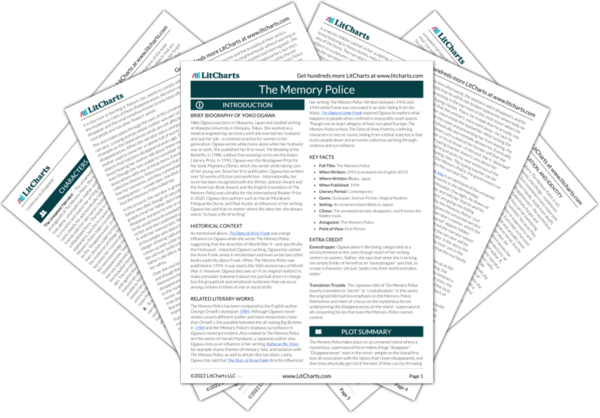This scene is an important first description of the strange, mysterious ways that disappearances work on the island and in the story. The simplicity of disappearances (nothing dramatic happens, people just wake up and know something is gone) suggests that “disappearances” in the novel are a metaphor for slowly forgetting something that happens (less mysteriously but just as consequentially) in real life. The narrator’s clinical description of birds as “nothing more” than “simple creatures” shows how effective disappearances are, since she only registers the bird as an object.
